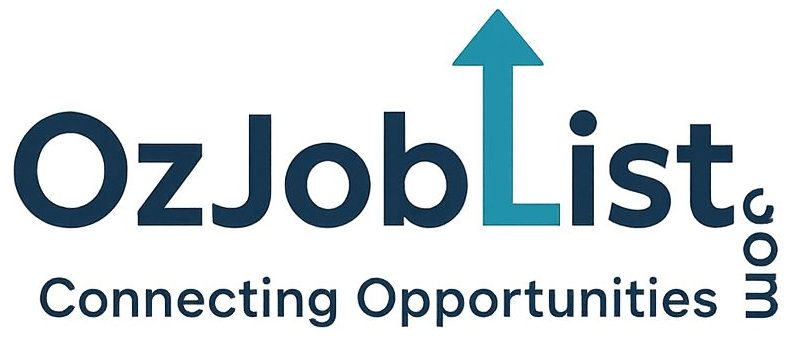Table of Contents
- What is an Accredited Employer?
- Benefits of Being an Accredited Employer
- Accreditation Criteria in Australia and New Zealand
- The Accreditation Process: Steps to Success
- Finding Accredited Employers in Australia and New Zealand
- Standard Business Sponsors vs. Accredited Sponsors
- The Role of Accredited Employers in Visa Applications
- Maintaining Accreditation: Renewal and Compliance
- Conclusion: The Importance of the Accredited Employer List
Navigating the world of immigration and work visas can be complex. One key aspect is understanding the accredited employer list process.
This list is a crucial resource for businesses and individuals alike. It provides a directory of employers who are authorized to sponsor employees for work visas.
For businesses, being on this list can streamline visa processing. It can also enhance their reputation and attractiveness to international talent.
For individuals seeking employment opportunities, the list serves as a guide. It helps them identify potential employers who can sponsor their work visas.
In this article, we will delve into the intricacies of the accredited employer list process. We will explore its benefits, the criteria for becoming an accredited employer, and much more.
Whether you’re a business seeking accreditation or an individual looking for work opportunities, this guide will provide valuable insights.
What is an Accredited Employer?
An accredited employer is a business that is authorized by immigration authorities to sponsor work visas. This designation is not granted lightly; it reflects a commitment to fulfilling the criteria set by immigration authorities.
Accreditation means that the employer has met specific standards. These standards often relate to their financial standing, business practices, and commitment to complying with immigration laws.
Being an accredited employer enhances an organization’s reputation. It signals to potential employees that the company is a reliable and trustworthy sponsor for their visa needs.
Accredited employers play a vital role in the immigration process. They facilitate the legal employment of foreign workers, contributing to economic growth and addressing skill shortages in various sectors.
Benefits of Being an Accredited Employer
Being accredited offers several advantages to businesses. It primarily streamlines the process of sponsoring work visas, making it faster and more efficient.
Accreditation signifies trustworthiness, improving the business’s appeal as an employer. This can attract talented workers who seek a reliable company for sponsorship.
Moreover, accredited employers often experience enhanced visa processing times. This efficiency aids in quickly filling essential roles.
Key benefits include:
- Faster visa processing
- Increased attractiveness to skilled applicants
- Enhanced trust and credibility
- Access to a broader pool of international talent
Ultimately, accreditation creates a competitive edge in the global hiring market, facilitating business growth and innovation.
Accreditation Criteria in Australia and New Zealand
Accreditation requires meeting specific criteria set by local immigration authorities. Australia and New Zealand each have distinct requirements for employers.
In Australia, eligibility involves proving financial stability and compliance with workplace laws. It ensures that businesses are capable of sponsoring employees fairly.
New Zealand requires companies to demonstrate their commitment to good employment practices. This includes providing fair wages and safe working conditions.
Both countries emphasize compliance with immigration laws. Breaching these conditions can result in severe penalties for the employer.
For businesses, understanding these criteria is crucial. Meeting all requirements increases the likelihood of attaining accredited status, enhancing recruitment potential.
Important criteria include:
- Financial stability
- Compliance with labor laws
- Good employment practices
- Adherence to immigration rules
Achieving accreditation highlights an employer’s commitment to ethical practices. It provides a foundation for attracting international talent while supporting economic goals.
The Accreditation Process: Steps to Success
Successfully navigating the accreditation process involves several key steps. Each step is crucial in achieving and maintaining accredited status.
First, employers need to gather all necessary documentation. This includes financial records, compliance with labor laws, and proof of ethical employment practices.
Next, businesses must submit an application to the relevant immigration body. This application will be thoroughly reviewed to ensure all criteria are met.
After submission, a waiting period ensues. During this time, employers may be requested to provide additional information or clarifications.
If approved, the employer receives accredited status. This status allows them to sponsor visas more efficiently, facilitating international hiring.
To ensure a smooth journey, employers should follow these steps:
- Gather required documentation
- Submit application to the immigration authority
- Await review and respond to requests
- Receive accredited status
By diligently following this process, businesses can successfully become accredited sponsors. This positions them for strategic hiring and compliance success.
Finding Accredited Employers in Australia and New Zealand
Knowing which employers are approved to sponsor work visas is vital if you’re seeking sponsored employment in Australia or New Zealand. These lists provide a directory of accredited businesses.
Here’s how you can access information on accredited employers:
- For Australia: You can easily view accredited sponsors by visiting Ozjoblist.com.
- For New Zealand: To check if a specific employer is accredited, visit the official Immigration New Zealand website at: https://www.immigration.govt.nz/new-zealand-visas/preparing-a-visa-application/working-in-nz/check-if-an-employer-is-accredited.
Using these resources helps job seekers identify businesses eligible to sponsor work visas, which is a crucial step in the job search and visa application process.
Standard Business Sponsors vs. Accredited Sponsors
Understanding the distinction between standard business sponsors and accredited sponsors is crucial for businesses. Each offers different advantages and requirements.
Standard business sponsors can nominate overseas workers for certain visas. However, the process might take longer due to more stringent checks.
In contrast, accredited sponsors enjoy expedited visa processing. This benefit comes from their proven track record and commitment to compliance.
Accreditation requires meeting higher standards, which builds trust with authorities. Thus, businesses striving for swift hiring of international talent should consider becoming accredited sponsors. This distinction can significantly impact recruitment and overall business strategy.
The Role of Accredited Employers in Visa Applications
Accredited employers play a crucial role in the visa application process. Their status can significantly impact the speed and outcome of applications.
For an employee, working with an accredited sponsor often means faster visa processing. This is due to the trust and reliability established through accreditation.
Applicants can trust that accredited employers understand immigration laws. This compliance reduces risks associated with visa rejections or delays.
Moreover, accreditation is often seen as a mark of quality and reliability. It assures prospective employees of the company’s commitment to lawful and ethical hiring practices.
Maintaining Accreditation: Renewal and Compliance
Maintaining accredited status requires diligent compliance. Accredited employers must adhere to specific obligations consistently.
Non-compliance can result in penalties or loss of accreditation. To prevent this, regular audits and updates are essential.
The renewal process for accreditation involves demonstrating ongoing adherence to set standards. This process is not automatic and requires effort.
Key compliance activities include:
- Regular record-keeping and accurate reporting.
- Timely submission of renewal applications.
- Ongoing communication with immigration authorities.
- Ensuring all visa applications meet the necessary criteria.
By ensuring these actions are followed, employers can maintain their prestigious status. This not only benefits their business but also strengthens their relationship with employees.
Conclusion: The Importance of the Accredited Employer List
The accredited employer list is vital for international employment success. It streamlines visa processes and builds trust between employers and workers.
By staying informed and compliant, accredited employers contribute to a robust workforce. This list not only supports skilled migration but also boosts economic growth and innovation worldwide.



